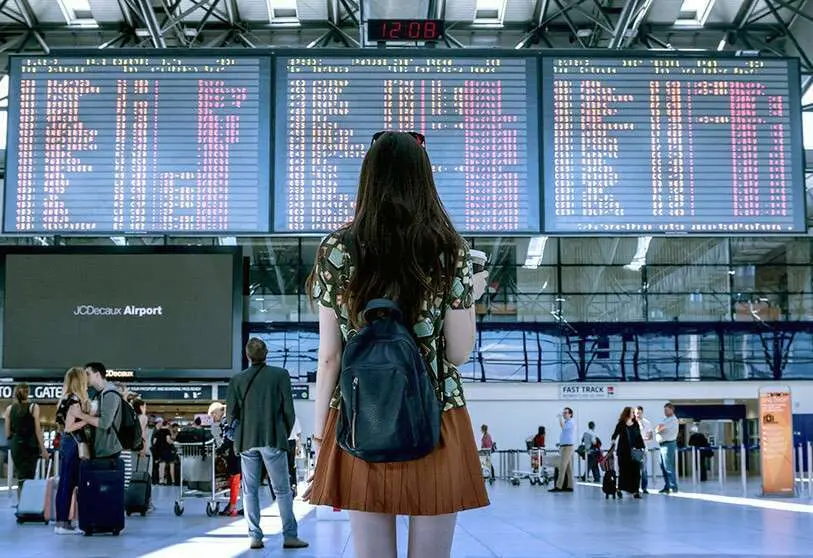Migration grief, an emotional "bombshell" for those living far from home

When migrants leave their country of origin to settle in another, they experience a series of emotional losses and feelings they cannot put a name to. This is "migratory grief", which, together with the consequences of the pandemic, is a "bombshell" for those who live far from home.
This is what psychologist Celia Arroyo assures Efe, explaining how she discovered it by chance after treating a Moroccan woman victim of gender violence, who was thought to be "becoming radicalised", but who simply "missed her roots".
It is an invisible syndrome, which, according to Arroyo, is not even studied in psychology courses, but which affects many people who "are not aware that they are going to lose many things" of their own identity when they go abroad, sometimes under an idealisation promoted by television programmes.
When Javier Moreno, from Madrid, had been living in London for seven years, he read an article by Arroyo and felt "identified" with what it said, since, as he told Efe, he had begun to miss "many things about Spain" and even felt the need to "reconnect with his roots" by joining a flamenco group.
Driven by curiosity, he did more research on the subject and decided to capture this in a documentary. Thus was born the project "Entre dos tierras" (available on platforms such as Filmin and which has been extended to a podcast), which shows 17 different profiles of Spanish migrants in London, including new arrivals, people who have been here for "many, many years", and people who have returned to Spain.
"We wanted to show people who are at different stages of migration to give us a global idea of what it means to migrate", says Moreno, who was helped by Arroyo herself and other psychologists such as Joseba Achotegui, who established the seven types of "migratory grief" that exist and which structure the documentary.
Migrants experience grief related to "family, language, culture, contact with the ethnic group, land, status and physical risks". Moreno says that being behind the camera has been a kind of "therapy" in which he has realised that they all have "something in common" that unites them: the loss of everything related to their country.
However, Arroyo points out that migratory mourning depends on the "psychological resources of each person" and "does not affect everyone in the same way". This is the case of Francisco del Rincón, a 31-year-old from Madrid, who explains to Efe that, due to the problematic relationship he has with his family, he did not feel any "loss" when he arrived in London nine years ago.
"I don't miss Spain. I can't miss something that was there 9 years ago", says Del Rincón, who in January became a British citizen and has put down roots in the English capital, although he recalls that his beginnings in London at the age of 22 were "very hard" and that he had "the worst job in the world".
According to the latest official figures, more than 246,000 Spaniards had applied for residence permits (as settled or pre-settled) in the UK by September 30.
In recent years, the lives of migrants in the UK have experienced two major 'turning points'. Firstly, the Brexit referendum, when some, like Moreno, experienced how the "sense of freedom" was lost and "the door that had always been open" closed.
The second, and more recent, is the coronavirus pandemic, which, according to Moreno, "has brought forward the idea of returning for many of us who are outside Spain, because we have realised that life has an expiry date"; and, in short, to rethink what they want to do with their lives.
Del Rincón, who a year ago was a self-employed tour guide, knows this well, but with the closure of international borders, his company closed and he had to reinvent himself.
"A friend of mine told me that they were looking for people for a field hospital and that they were looking for people with no health experience, just to help the nurses. So I signed up," he says. That's how he discovered his new vocation, and now he intends to do a master's degree in nursing.
Arroyo explains that the most surprising thing about "migratory grief" is that it "paralyses" the life projects of those who suffer it and makes them live in discomfort. "They have four chairs at home and don't buy a sofa, not because they can't, but because it would mean putting down roots" which breaks with their plan to return.
Even Moreno, who has been in London for a decade, longs to return to Spain one day. "I'd like to go back, take up my work there and be able to enjoy my family, my friends and my country, which after 10 years I still miss.







